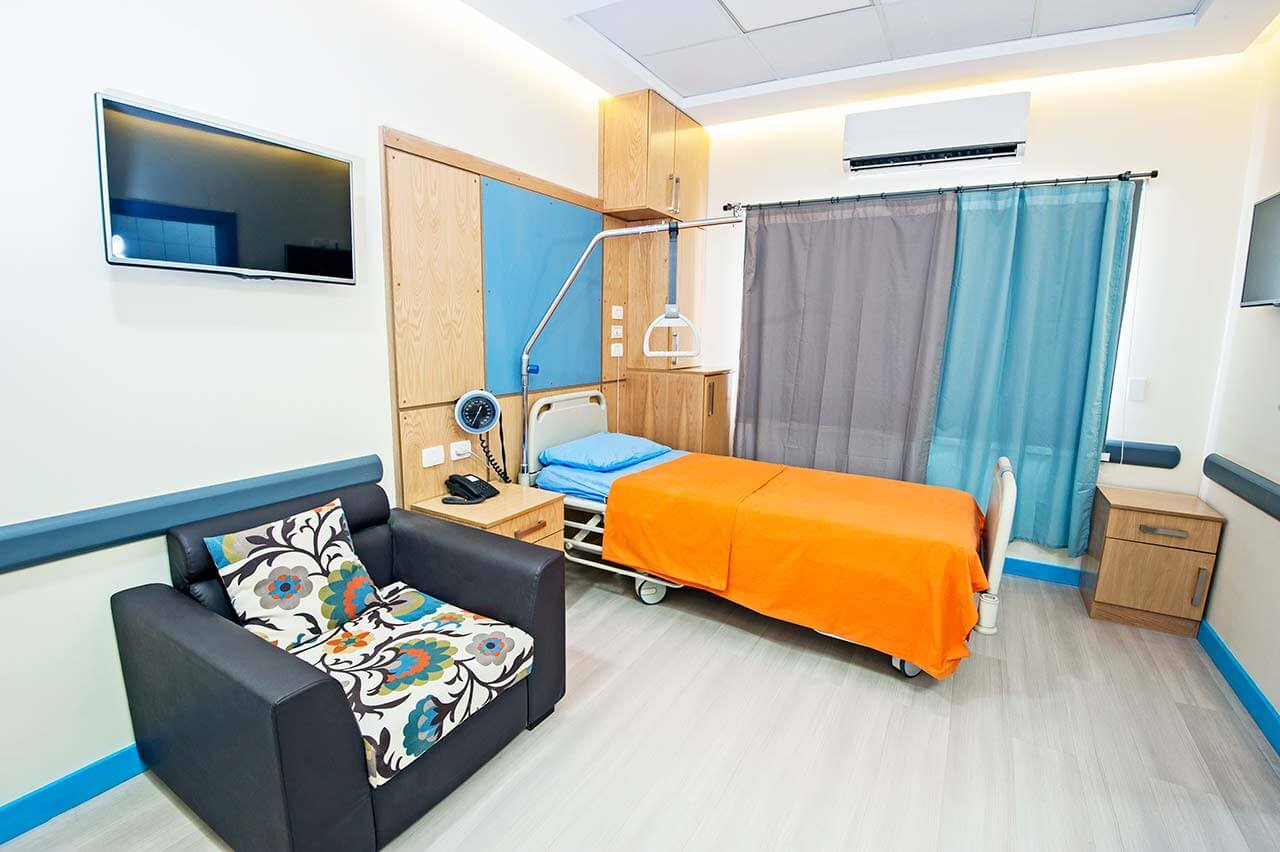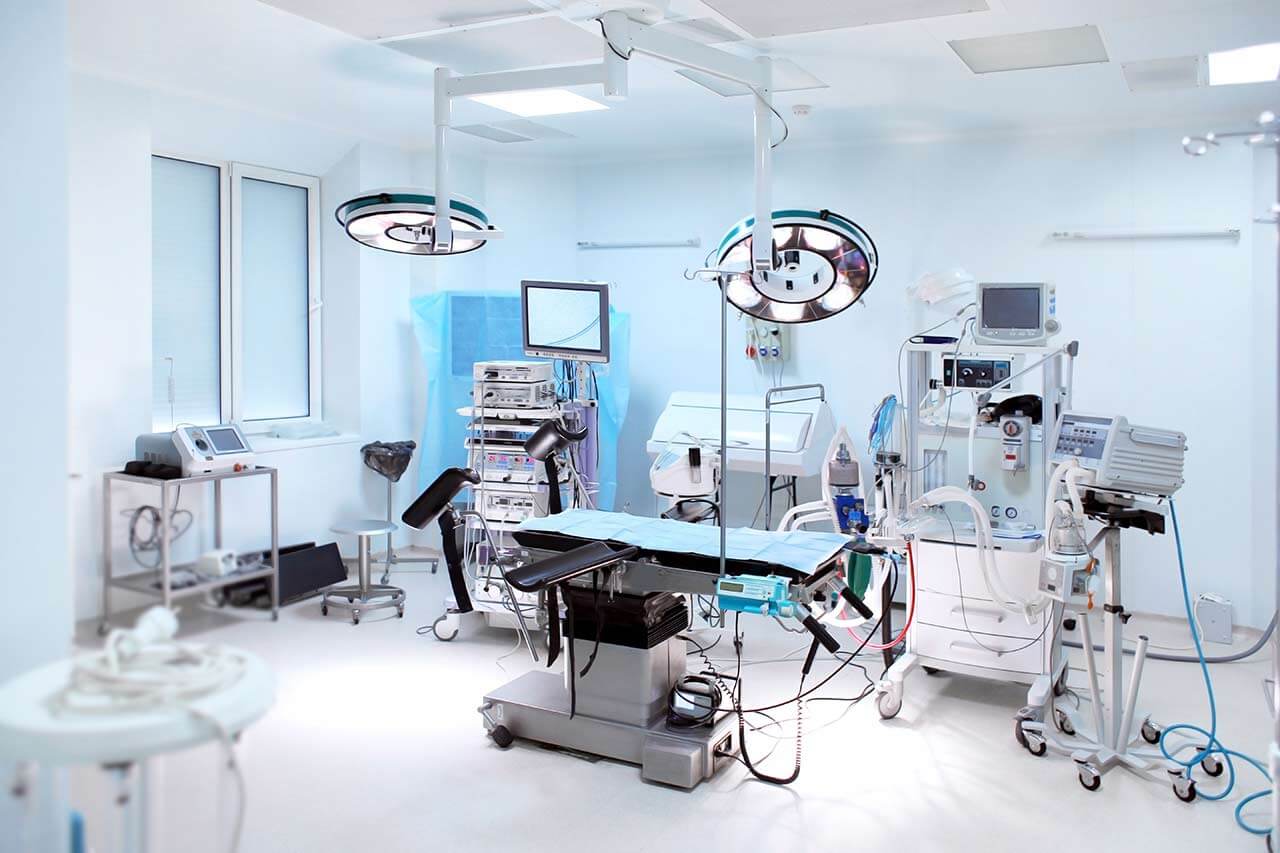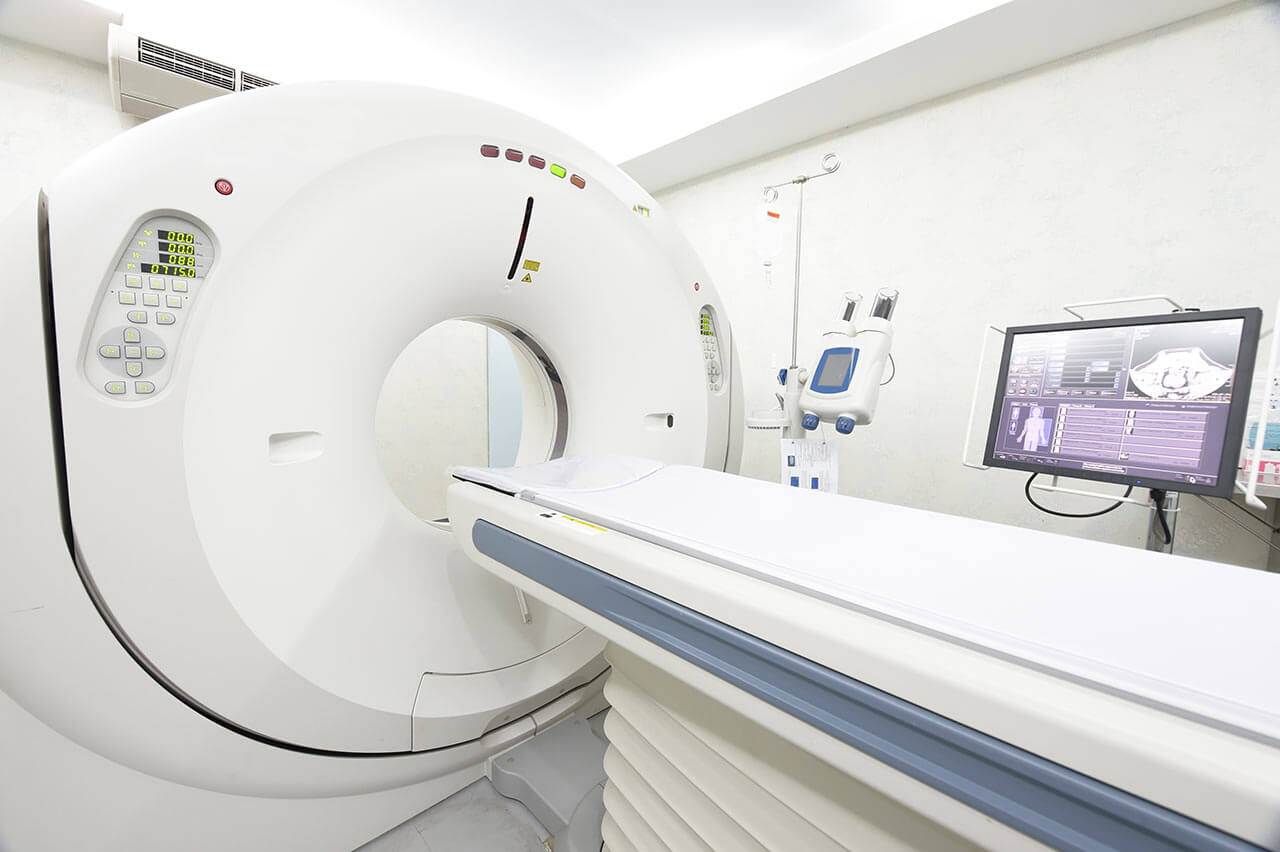
The program includes:
- Initial presentation in the clinic
- clinical history taking
- physical examination
- review of medical records
- laboratory tests:
- complete blood count
- biochemical blood analysis
- indicators of inflammation (CRP, ESR)
- indicators of blood coagulation
- otorhinolaryngological examination:
- rhinoscopy
- otoscopy
- audiometry
- x-ray/ ultrasound
- CT scan of ear (on indication 650 €)
- nursing services
- consultation of related specialists
- consultation of the chief physician and all leading experts
- development of individual treatment plan
- written statement
Required documents
- Medical records
- Audiometry (if available)
- Temporal bone CT scan (if available)
Service
You may also book:
 BookingHealth Price from:
BookingHealth Price from:
About the department
The Department of Adult and Pediatric Otolaryngology, Head and Neck Surgery at the University Hospital Carl Gustav Carus Dresden offers the full range of diagnostics and treatment of ENT diseases. It admits patients of various age groups, including young children. The department specializes in the surgical treatment of head and neck tumors, navigation surgery for acoustic neuroma and skull base tumors, the placement of implantable hearing aids, ear and orbit microsurgery, as well as endoscopic surgery of the nose and paranasal sinuses, and plastic reconstructive surgery. The department includes the internationally recognized Cochlear Implant Center (SCIC). More than 3,000 inpatients receive medical care in the department annually. The department also provides many outpatient services, including outpatient surgery. If necessary, the treatment may be provided in a day patient facility. Since 2019, the department has state-of-the-art operating rooms – some of the best in Europe. More than 400 patients with head and neck tumors receive top-class treatment here every year. The patients are treated by competent doctors with a wealth of clinical experience and advanced technical resources for the restoration of ENT organs. The department is headed by Prof. Dr. med. Dr.h.c. Thomas Zahnert.
The main department's focus is on the surgical treatment of benign and malignant ENT diseases and pathologies. Minor and low-risk interventions are performed on an outpatient basis. These include, for example, removal of tonsils, tympanic membrane perforation, tympanostomy tube insertion, tympanic cavity revision, repair of minor tympanic membrane defects, removal of the ear canal bony growths (exostoses), removal of individual cervical lymph nodes, interventions on the maxillary sinuses, etc. The patient can leave the hospital on the same day after the outpatient procedure.
More invasive surgical procedures are carried out on an inpatient basis, which include operations on the external (auricle and external auditory canal), middle (eardrum, auditory ossicles and ear mucosa) and internal (cochlear implant placement) ear. In the field of nasal surgery, corrective interventions are performed on the nasal septum and paranasal sinuses. The doctors also perform surgery for skull base injuries and pathologies. The department's distinctive feature is laser treatment of laryngeal tumors. Thanks to the use of the very latest laser technologies and precise control using a surgical microscope, high treatment success with the maximum possible organ preservation is ensured. Another important area of the department's work is phonosurgery, namely, functionally oriented laryngeal surgery, the purpose of which is to preserve or restore the voice.
The department is highly competent in the surgical treatment of malignant diseases of the nasopharynx and oral cavity. The doctors most often deal with the treatment of various types of squamous cell carcinoma. To offer patients the optimal treatment regimen, a histological examination of the tumor is performed. Imaging diagnostic methods are also used, including MRI, CT, PET and ultrasound scanning, which provide additional clinically relevant information. Thanks to the use of the very latest surgical techniques, the use of laser surgery, ultrasonic scalpel, navigation surgery and plastic reconstructive surgery, the best treatment results are achieved and possible functional limitations after surgery are minimized. An experienced team of doctors and nursing staff works in the department for the benefit of patients. They make every effort to provide the patients with the best chance of recovery.
An important focus in the department's work is on cochlear implantation in adults and children. The prescription of the procedure for placing a cochlear implant is preceded by comprehensive diagnostics, which helps the doctors to assess the feasibility of this type of therapy. The diagnostic protocol includes the study of the patient's medical history, clinical examination with otomicroscopy, audiometry, tests to assess speech understanding with and without hearing aids, impedance audiometry, brainstem audiometry, assessment of auditory nerve function, imaging tests (CT and MRI of the head) and other diagnostic measures. If, according to the diagnostic results, cochlear implantation is indicated to a child, doctors prescribe surgery. Cochlear implantation is performed by some of the best German surgeons with long experience in this field. The duration of the operation is 1-1,5 hours. Postoperative recovery on an inpatient basis takes 4-6 days, depending on individual indications. To achieve an optimal result after cochlear implantation, a professional comprehensive rehabilitation is required. At the rehabilitation stage, the cochlear implant audio processor is individually adjusted. The specialists carry out special sessions to train hearing and speech (individually and in groups), as well as other necessary procedures. The regimen of hearing recovery after cochlear implantation in children and adults are different – young patients require longer and more intensive rehabilitation.
The department is certified as the Head and Neck Tumor Center by the German Cancer Society (DKG), which meets the highest competence and effectiveness of treatment in this medical field. The center deals with the treatment of benign and malignant tumors of the oral cavity, larynx, salivary glands, nasal cavity, sinuses, auricles, cervical soft tissues, scalp and neck. The study of the diagnostic results and the development of the treatment regimen take place at an interdisciplinary board with the participation of otolaryngologists, oncologists, radiation therapists and other specialists.
The department's surgical range of services includes the following options:
- Outpatient surgical interventions
- Removal of nasopharyngeal tonsils
- Eardrum puncture
- Tympanic cavity revision
- Repair of minor eardrum defects
- Removal of the ear canal bony growths (exostoses)
- Minimally invasive laryngeal surgery
- Removal of individual cervical lymph nodes
- Simple surgical procedures on the nasolacrimal canals
- Maxillary sinus surgery
- Removal of salivary gland stones and small cysts of the oral cavity
- Excision of the salivary gland duct
- Inpatient surgical interventions
- Ear surgery
- Outer ear (auricle and external auditory canal)
- Middle ear (eardrum, ossicles, and ear mucosa)
- Inner ear (cochlear implant placement)
- Head, nose, sinus and septic surgery
- Corrective interventions on the nasal septum
- Surgical treatment of paranasal sinuses
- Surgical treatment of skull base injuries and pathologies
- Laser surgery for laryngeal cancer
- Partial laryngeal resection
- Phonosurgery
- Surgical treatment of benign changes in the vocal cords, polyps, cysts and chronic edema
- Cochlear implantation in children and adults, including follow up rehabilitation
- Surgical treatment of malignant tumors of the tongue / tonsils / neck
- Various types of squamous cell carcinoma
- Malignant lymphomas
- Lymphoepithelial carcinoma
- Plastic reconstructive surgery of the face and neck
- Ear surgery
- Other outpatient and inpatient surgical procedures
Curriculum vitae
Prof. Dr. med. Dr.h.c. Thomas Zahnert heads the Department of Adult and Pediatric Otolaryngology, Head and Neck Surgery at the University Hospital Carl Gustav Carus Dresden. His particular areas of specialization include the implantation of hearing aids, surgery for ear canal diseases, surgery for middle ear diseases, and cochlear implantation.
According to the Focus magazine, Prof. Thomas Zahnert ranks among the best German otolaryngologists!
Photo: (с) depositphotos
About hospital
According to the reputable Focus magazine, the University Hospital Carl Gustav Carus Dresden ranks among the top five German hospitals!
The hospital is the benchmark for modern high-quality medicine. Positioning itself as a maximum care medical facility, the hospital represents all medical fields. There are 26 specialized departments, 6 institutes and 17 interdisciplinary centers, which cooperate closely with the clinical and scientific facilities of the Faculty of Medicine. The basis of successful practice is excellent equipment, which is regularly updated, as well as highly qualified, experienced medical personnel: world famous doctors and professors work here for the benefit of patients.
In addition to its main goal of caring for patients, the hospital is also active in training and professional development of medical personnel, as well as in the field of public health care. The priority focus of the work is research activity, which allows the doctors to introduce the innovative diagnostic and therapeutic techniques into clinical practice.
A special feature of the hospital is also the diagnostics and treatment of rare diseases. State-of-the-art equipment and well-coordinated work of doctors of various medical specialties make it possible to timely recognize pathologies rarely encountered in medical practice and select the most effective therapy. Specialization in rare diseases include neurology, endocrinology, hematology/oncology, and rare autoimmune diseases.
The hospital has 1,410 beds for patient hospitalization. About 55,900 inpatients and more than 233,975 outpatients undergo treatment here annually. A large medical team, consisting of about 1,000 highly qualified doctors, as well as over 2,000 nursing staff take care of the patients' health. Each patient is guaranteed an individual approach and the most effective treatment in accordance with current clinical protocols.
It should be noted that the university hospital enjoys an impeccable reputation not only in Germany, but also far beyond its borders, including Arab countries, post-Soviet states, Great Britain and the United States. Patients from different parts of the world come here for high-quality treatment for diseases of any severity. The highest credit of patient confidence is the main indicator of the fruitful work of doctors.
Photo: (с) depositphotos
Accommodation in hospital
Patients rooms
The patients of the University Hospital Carl Gustav Carus Dresden live in comfortable rooms made in bright colors and equipped with everything necessary. The standard patient room includes an automatically adjustable bed, a bedside table with a sliding table, a wardrobe, a telephone and a TV. There is also Wi-Fi (free) in the patient rooms.
If desired, patients may live in enhanced comfort patient rooms. These patient rooms have a more sophisticated design, upholstered furniture and a safe for storing valuables.
Meals and Menus
The patients of the hospital are offered a tasty, healthy and varied three meals a day. The menu is based on local cuisine and seasonal food. If you for some reason do not eat certain products, please inform the medical staff of the hospital in advance, and you will be offered an individual menu. The nutrition provided in the hospital is certified in accordance with the quality standards of the German Nutrition Society (DGE) for catering in German hospitals.
Further details
Standard rooms include:
Religion
The religious services are available upon request.
Accompanying person
Your accompanying person may stay with you in your patient room or at the hotel of your choice during the inpatient program.
Hotel
You may stay at the hotel of your choice during the outpatient program. Our managers will support you for selecting the best option.
The hospital offers a full range of laboratory diagnostic procedures (general, hormonal, tests for tumor markers, infections, antibodies, etc.), genetic tests, various modifications of ultrasound scans, CT scans, MRI and PET / CT, angiography, myelography, biopsy and other examinations. Treatment with medications, endoscopic and robotic operations, stereotaxic interventions is carried out here, modern types of radiation therapy are also used. The hospital offers patients all the necessary therapeutic techniques.
- Cochlear implantation
- Deep brain stimulation
- Treatment of benign prostatic hyperplasia with green laser
- Da Vinci prostatectomy
- Bone marrow transplantation
These are head and neck tumors, hearloss, amyotrophic lateral sclerosis, epilepsy, Parkinson disease, infertility, malignant tumors of the reproductive system, congenital anomalies of the genital organs and the urinary system, urinary incontinence, blood clotting disorders, leukemia and other pathologies.
- Otolaryngology (Center for Cochlear Implantation)
- Neurology and Epileptology
- Urology
- Oncology
- Gastroenterology and Hepatology
About 1,000 highly qualified doctors work at the hospital.





